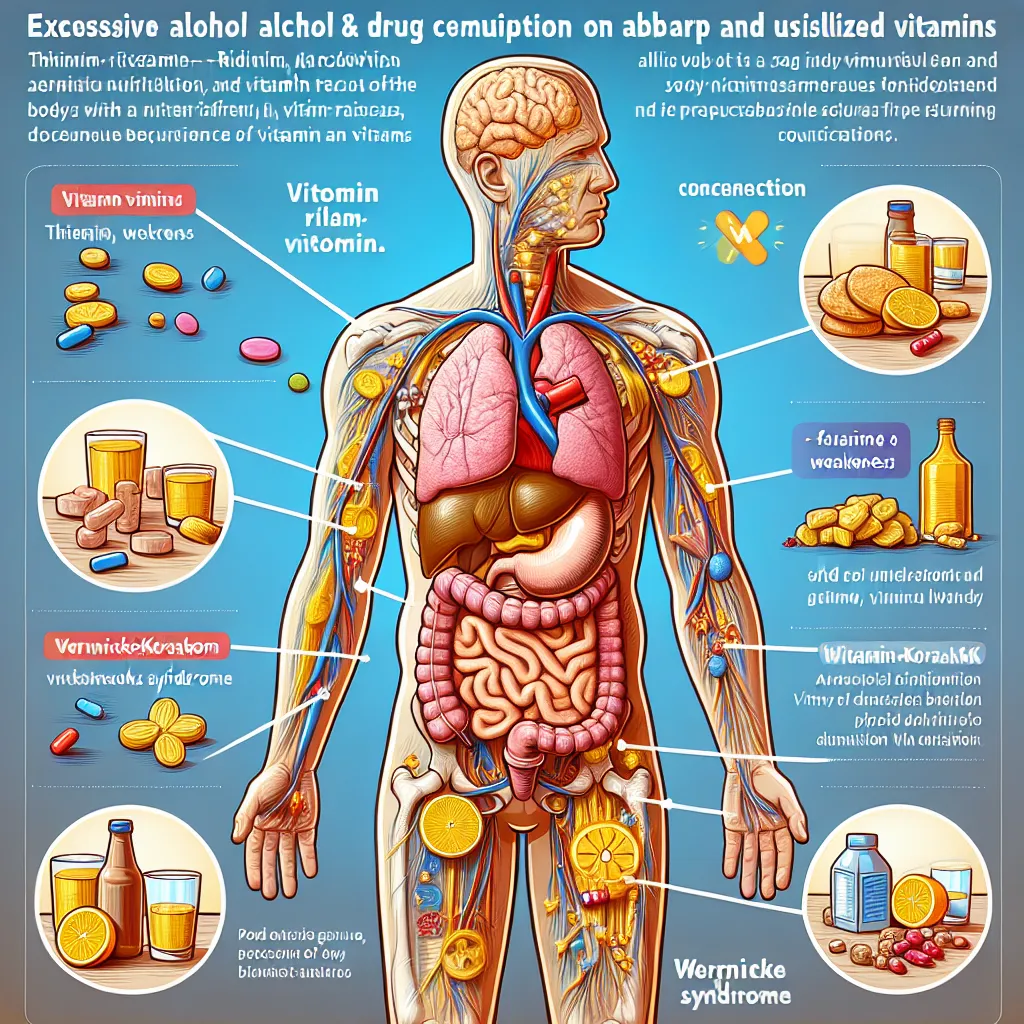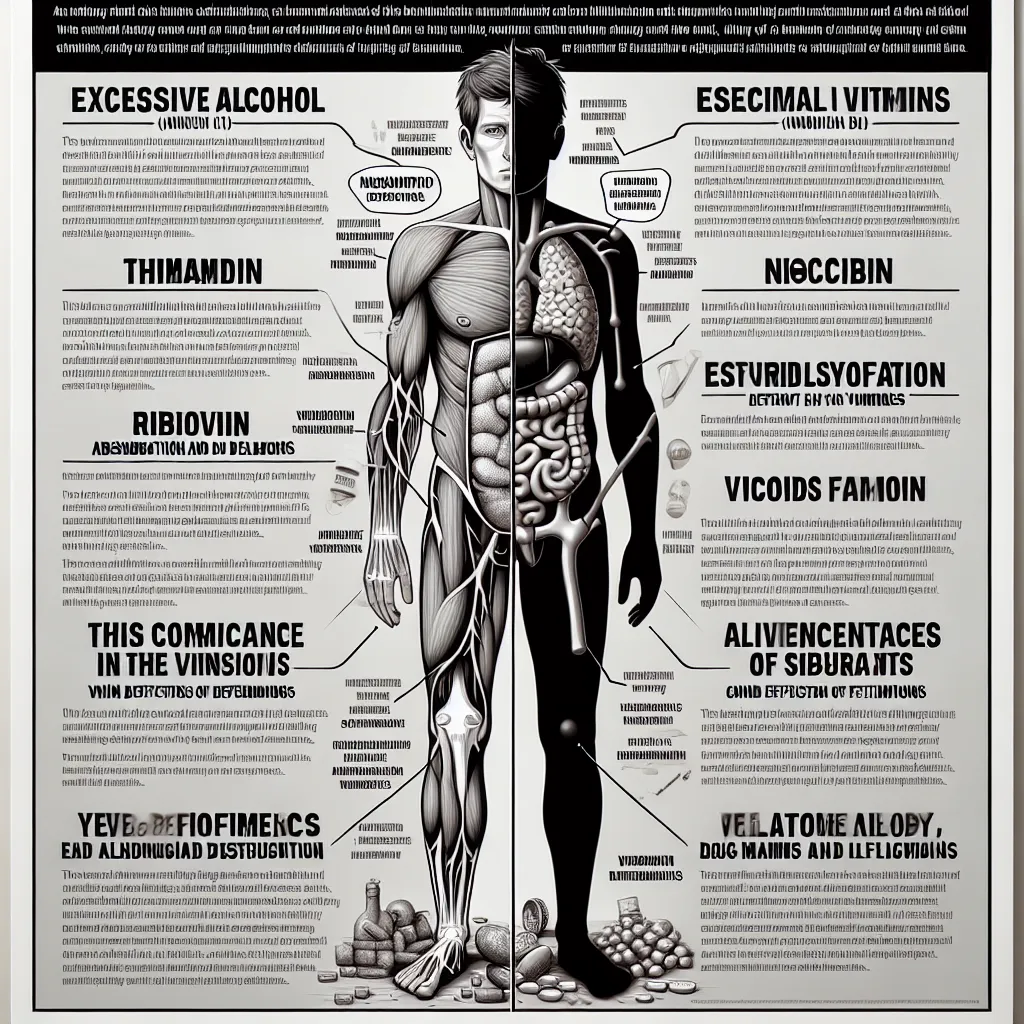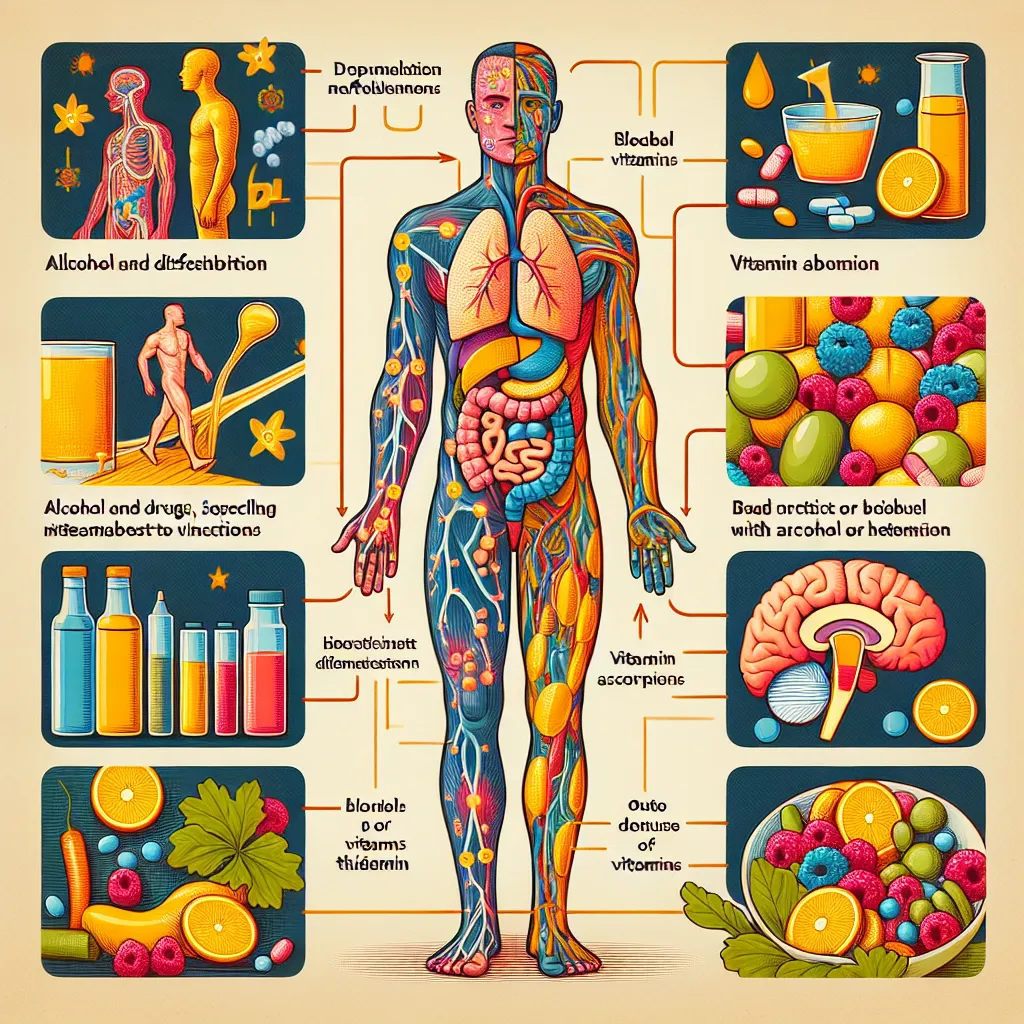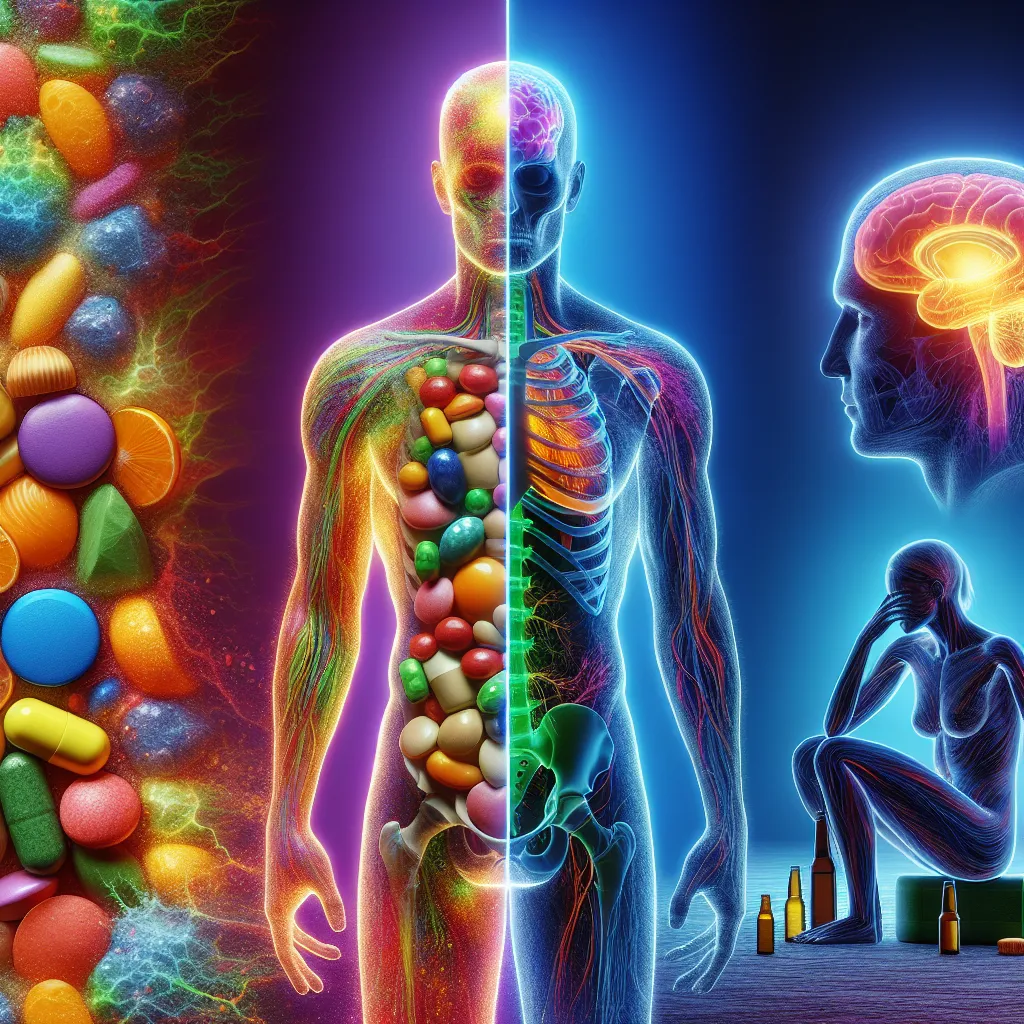Ask AI on The Internet
Question: Write 2 paragraphs on Alcohol affect on use of vitamins, Drug affect on use of vitamins and give an Overall explanation of the affect on body’s need for and use of vitamins
Alcohol consumption can have significant negative effects on the body's use of vitamins, leading to deficiencies that compromise overall health. Chronic alcohol intake interferes with the absorption and metabolism of several essential vitamins, particularly B-complex vitamins such as thiamine (vitamin B1), folate (vitamin B9), and vitamin B12. For instance, thiamine deficiency, often seen in heavy drinkers, can lead to Wernicke-Korsakoff syndrome, a serious neurological condition. Alcohol also impacts the liver, where many vitamins are processed, reducing the organ's ability to activate or store these nutrients effectively. This impaired absorption and processing mean the body requires higher quantities of these vitamins to maintain normal function, which can be challenging for those with alcohol use disorder. Similarly, certain medications and drugs can also affect the body's vitamin levels, either by interfering with absorption, metabolism, or excretion of vitamins. For example, antibiotics can disrupt gut flora, which is essential for the synthesis of some B vitamins and vitamin K. Anticonvulsant drugs used for managing epilepsy can affect vitamin D levels, leading to bone health issues. Even commonly used drugs like antacids can decrease the absorption of vitamin B12, leading to deficiencies over time. People taking long-term medications may need to monitor their vitamin levels and consider supplements to prevent deficiency-related health issues. Overall, the body's need for and efficient use of vitamins can be significantly influenced by alcohol consumption and drug use. Vitamins are vital for numerous biochemical processes, including energy metabolism, immune function, and cellular repair. When their absorption or metabolism is compromised by external factors such as alcohol or medications, it can lead to a range of deficiencies, causing symptoms from mild fatigue to severe neurological and physiological disorders. This underscores the importance of monitoring vitamin levels in individuals with chronic alcohol use or those on long-term medication regimens, ensuring that their dietary intake or supplementation adequately meets their body's needs to maintain optimal health.
Think your answer is better than the AI's? Post it below.
Other Most Relevant Posts:
 Navigating Alcohol: Understanding Legal Limits, Gender Differences, Drinking Patterns, Hangover Symptoms, and Accident Risks
Navigating Alcohol: Understanding Legal Limits, Gender Differences, Drinking Patterns, Hangover Symptoms, and Accident Risks
Question Tags
If you want your question answered by an AI, click here.






Post your own comment: